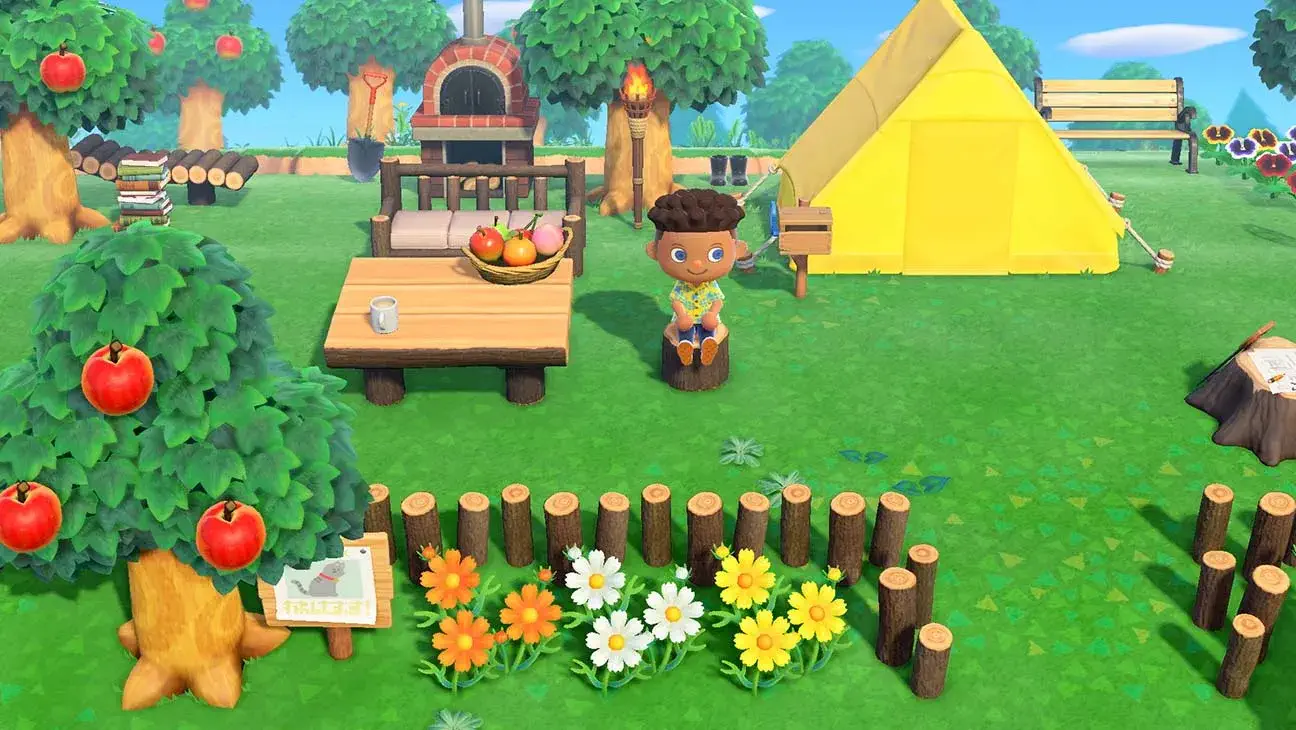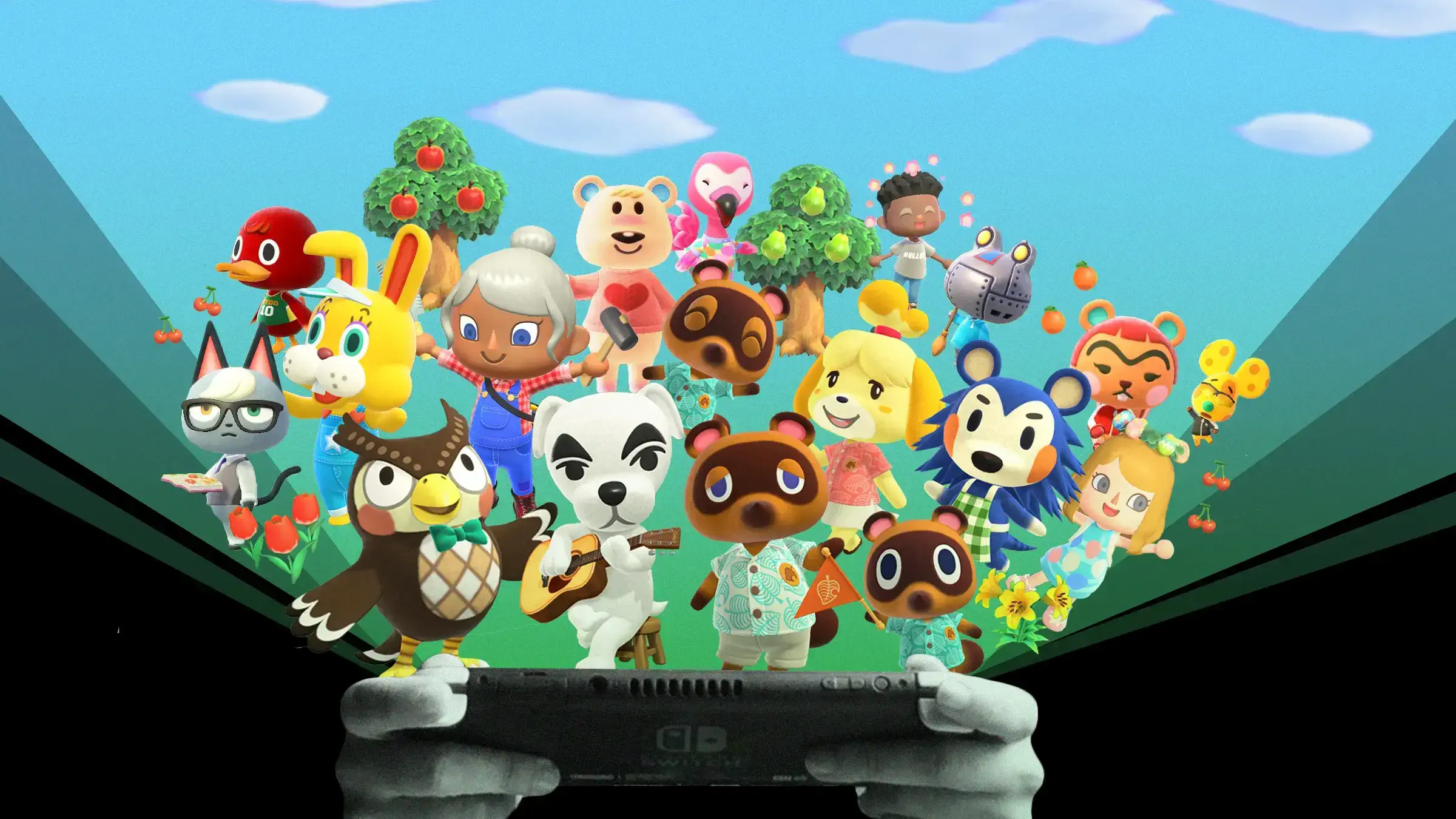Animal Crossing: New Horizons, often abbreviated as ACNH, is one of Nintendo’s most successful and beloved titles. Released on March 20, 2020, exclusively for the Nintendo Switch, the game quickly became a global phenomenon, selling over 40 million copies worldwide. It belongs to the life simulation and open-world sandbox genre, offering players a relaxing escape into a customizable island paradise.
Animal Crossing: New Horizons emphasizes creativity, social interaction, and slow-paced progression in contrast to conventional competitive or action-heavy games. Players can decorate their island, make friends with animal villagers, and express themselves in a variety of ways in this comfortable and serene setting.
Gameplay Overview Animal Crossing: New Horizons

Source: HollywoodReporter
Life on a Deserted Island
The game begins with the player purchasing a package from Tom Nook, a raccoon entrepreneur, which grants them a new life on a deserted island. The island initially has basic resources like trees, rocks, rivers, and beaches. Over time, the player develops the island into a thriving community by building homes, shops, bridges, and outdoor facilities.
Customization and Creativity
The unparalleled degree of personalization offered by Animal Crossing: New Horizons is one of its main draws. Using the Island Designer app, players can alter the appearance of their characters, furnish the inside and outside of their houses, and change the island’s topography. Players can create cliffs, rivers, waterfalls, and pathways with this feature, effectively turning the island into their own customized paradise.
Social Interaction and Villagers
Animal Crossing wouldn’t be complete without its colorful cast of animal villagers. Each villager has a unique personality type, style, and dialogue, creating a dynamic social experience. Players can befriend their villagers by talking to them daily, sending letters, and giving gifts. Villagers may even move in or leave, adding variety to the community over time.
Core Features of the Game Animal Crossing: New Horizons
Seasonal Events and Real-Time Gameplay
Animal Crossing: New Horizons adapts to the time of day and season because it is synchronized with the calendar and clock of the real world. Seasonal celebrations such as the Cherry Blossom Festival, Halloween, Bunny Day (Easter), and Toy Day (Christmas) offer unique experiences and limited-edition merchandise. The game feels alive thanks to this real-time feature, which also entices players to come back every day.
Crafting and Resource Gathering
Compared to earlier games, crafting is a significant new feature in ACNH. To make tools, furniture, and décor, players gather materials like clay, stone, wood, and iron nuggets. However, tools deteriorate over time and need to be repaired, giving the otherwise soothing gameplay a survival-like feel.
Online and Multiplayer Features
The game shines when it comes to multiplayer interaction. Players can visit friends’ islands via local wireless or online play, trade items, share design patterns, and even host in-game events. Social media communities have also embraced this feature, with players showcasing their island creations, hosting virtual parties, and conducting trades using systems like Nookazon (a fan-made marketplace).
Why Animal Crossing: New Horizons Became a Global Phenomenon

Source: media.wired.com
Perfect Timing During the Pandemic
At the start of the COVID-19 pandemic, when millions of people were staying at home looking for solace and connection, Animal Crossing: New Horizons was launched. Through virtual get-togethers, the game turned into a haven for friends and families. It even served as a venue for business meetings, weddings, and graduations.
Creativity Without Limits
The limitless customization and design opportunities helped the game appeal to a broad audience. From casual players to hardcore designers, everyone could express themselves. The ability to terraform the island and create unique themes-such as Japanese gardens, city landscapes, or fantasy villages-gave players a sense of ownership and pride.
Cultural Impact and Collaborations
Animal Crossing also crossed into mainstream culture. Fashion brands, musicians, and even politicians used the game to connect with audiences. For example, Gucci, Valentino, and Marc Jacobs released in-game outfits, while famous musicians hosted virtual concerts on custom-made stages within the game.
Tips for New Players Animal Crossing: New Horizons

Source: yesdok.com
Focus on Daily Activities
To progress efficiently, players should focus on daily tasks such as collecting wood, shaking trees, hitting rocks, and talking to villagers. These small activities accumulate over time and contribute to island development.
Invest in the Stalk Market
Players purchase turnips from Daisy Mae and sell them at varying prices throughout the week in the entertaining economic system known as the Stalk Market. Players can earn millions of Bells (the in-game currency) by visiting friends’ islands or by timing their visits carefully.
Use Nook Miles Wisely
Nook Miles are a secondary currency earned through achievements and daily activities. Players can redeem them for special items, upgrades, and Mystery Island Tours. These tours allow players to gather resources, catch rare bugs and fish, or recruit new villagers.
Strengths and Weaknesses of Animal Crossing New Horizons
Strengths
- Relaxing, stress-free gameplay suitable for all ages.
- Unparalleled customization and creativity.
- Strong social and community aspects.
- Real-time events and seasonal updates keep the game fresh.
Weaknesses
- Lack of a clear long-term objective may feel repetitive for some.
- Tools breaking frequently can be frustrating.
- Multiplayer is charming but limited compared to MMORPG standards.
Conclusion
Animal Crossing: New Horizons is more than just a video game-it is a cultural and social experience. By blending real-time mechanics, creativity, and heartwarming social interactions, it has captured the hearts of millions worldwide. Whether you enjoy decorating, fishing, crafting, or simply chatting with your villagers, the game offers something for everyone.



